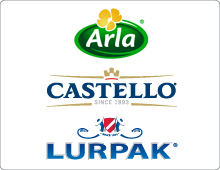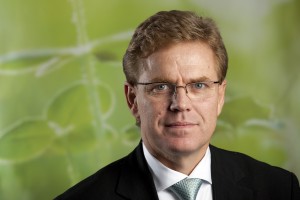Arla Foods Increases Revenue and Earnings

Despite continuing weak consumer confidence in Europe, where 80% of its business is based, Arla Foods achieved double digit growth in both revenue and earnings in 2011. Revenue rose by 12% to almost DKr55 billion (Eur7.4 billion) and Arla Foods increased the earnings for its 8,200 co-operative owners in Denmark, Sweden and Germanyby 11%, paying out a performance price of DKr2.80 for each kilogramme of milk supplied. During 2011, Arla also paid DKr1.6 billion more to the co-operative owners than in the previous year. The retained profit of DKr1.31 billion was up from DKr1.27 billion in 2010.
”These are strong results in a difficult time. Primarily because we have improved earnings for our owners to a level that is almost on par with the best we’ve ever delivered,” says Peder Tuborgh, chief executive of Arla Foods. “During an economic crisis, more consumers choose to buy discount products and fewer branded products. This has an effect on Arla’s earnings. But at the same time, we’re seeing a rising demand in markets outside Europe, which will offset the flattening growth in Europe.”
 Arla’s brands helped it to grow outside Europe. Half of Arla’s revenue growth was through organic growth, in part driven by Arla’s three global brands – Arla, Lurpak and Castello. The Arla brand showed a significant growth of 8% in 2011, resulting in global revenues of DKr20.6 billion
Arla’s brands helped it to grow outside Europe. Half of Arla’s revenue growth was through organic growth, in part driven by Arla’s three global brands – Arla, Lurpak and Castello. The Arla brand showed a significant growth of 8% in 2011, resulting in global revenues of DKr20.6 billion
Arla Foods has enjoyed success in new markets, particularly in MENA (Middle East and North Africa) and Russia. It also made a major breakthrough in Germany during the year following the merger with Hansa-Milch and the acquisition of Allgäuland-Kasereien.
Arla Foods Ingredients (AFI), which is responsible for Arla’s global production of whey, whey proteins and ingredients for the food industry, had a strong year and was one of Arla’s most profitable business areas. Despite the rise in raw material prices, AFI succeeded in launching new products and increasing revenues by 25%.
Although Arla Foods expects to maintain growth in 2012, the year ahead will be challenging. “While 2011 was a good year for Arla, the last quarter showed slight pressure on performance, reflecting a deteriorating business environment in Europe, which has continued into 2012. We expect significant revenue growth and for profits to be on par with 2011 albeit with fluctuations in the milk price for our co-operative owners over the year,” says Peder Tuborgh.
He continues: “To secure the top-line expansion effectively converts to the bottom-line, we’re working on all fronts to improve our internal efficiency. For the group as a whole, we’re focusing on growing revenues considerably faster than costs. We’re making progress in this direction, but there’s still some way to go. We’re focusing, therefore, on creating a more structured and less complex way of working, and we expect to launch some specific initiatives in 2012.”


































